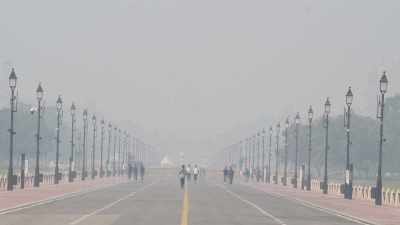Finally, Gehlot tells DMs, SPs to crack the whip on trouble-makers
JAIPUR, AUG 13: Rajasthan Chief Minister Ashok Gehlot has cautioned District Collectors and Police Superintendents against threats to comm...

JAIPUR, AUG 13: Rajasthan Chief Minister Ashok Gehlot has cautioned District Collectors and Police Superintendents against threats to communal harmony and peace in view of the alert sounded by the Union Home Ministry, official sources have disclosed.
Gehlot addressed District Collectors and Superintendents of Police at a meeting convened here yesterday as a follow-up to a special meeting held by Home Minister L.K. Advani with chief ministers earlier in the month to share his threat perceptions regarding systematic attempts to create disturbances in the country.
Gehlot told them that they were free to firmly deal with such threats and assured them that neither he nor the state Home Minister Gulab Singh Shaktawat would interfere in their work. The Chief Minister asked them to take prompt action whenever any organisation, no matter which faith it owed allegiance to, tried to create trouble.
Underlining the need for preventive action, Gehlot said that his authorisation was substantiated by a string of such incidents, the most recent being the communal violence in Malpura-Tonk.
Indeed, political observers say that ever since the Congress government assumed office in December, 1998, several towns — Phalodi, Tonk, Malpura, Rajsamand and Udaipur — have witnessed communal tension. The administration, in most cases, neither took adequate measures to prevent trouble, nor took effective steps to book the culprits and restore peace, they point out.
At Phalodi, where Rajasthan Shiv Sena president Murlidhar Bohra wasstabbed to death, the trouble broke out after Hindus resisted the transportation of cows allegedly being taken via rail to Bihar for slaughter. In Tonk, it was a protracted dispute between two groups of students, one comprising Hindus and the other Muslims, which led to riots earlier this year. Within three months, communal trouble broke out in Malpura town in the same district after Kailash Mali, husband of local municipal committee president Seoti Devi of the BJP, was stabbed to death.
At Rajsamand, the trouble started this month after a procession of kanwarias was pelted with stones when it passed through a Muslim locality. In Udaipur, tension was sparked off by pro-Islam slogans inscribed on the walls of homes and temples of Hindus and the circulation of handbillsagainst a Jain Muni camping in the town.
Any District Collector or Superintendent of Police ought to have foreseen trouble in all these cases, the observers say. But even after the trouble started, they should have been prompt in bringing the situation under control. At Phalodi, complete anarchy prevailed for a whole day and violent mobs remained pitted against one another for considerable time before the clashes took place, the observers say.
At Tonk, the administration did not take note of a developing situation for over a week. At Malpura, Mali was widely known as a potential target for a group of Muslims due to his role in the 1992-riots and his murder was bound to create communal riots. The administration took several hours to impose a curfew, which cost 11 more lives. At Rajsamand, a kanwaria procession would have warranted adequate security arrangements, particularly in a minority-dominated area, they point out.
In Udaipur, slogans and handbills appeared for two consecutive days. Preventive action aside, the police even failed to check a recurrence of the mischief. In the backdrop of this scenario, Gehlot’s warning, even though timely, will need to be followed up with requisite action to show the much-needed results, the observers add.





- 01
- 02
- 03
- 04
- 05


























